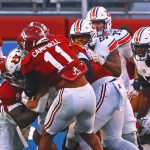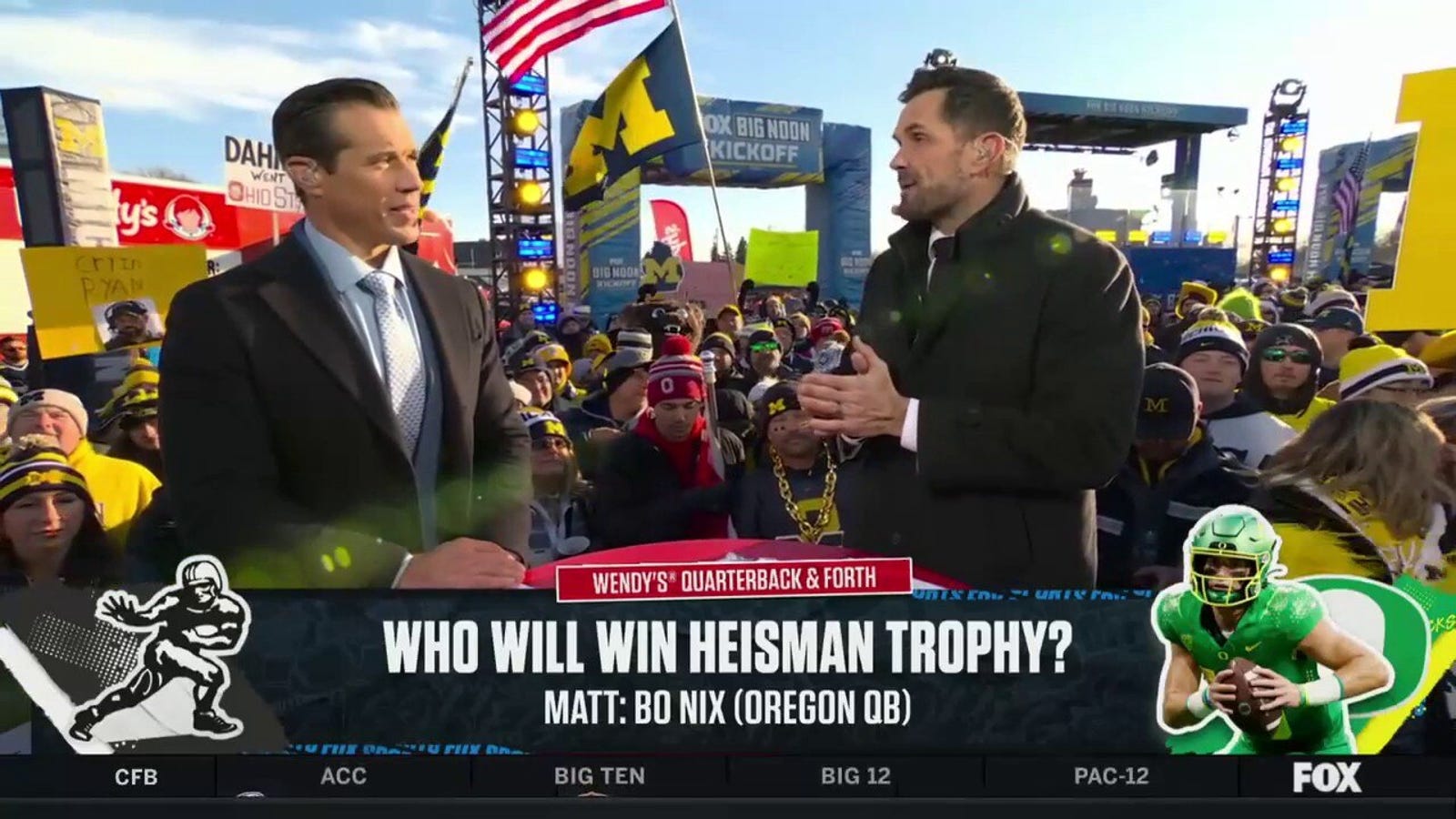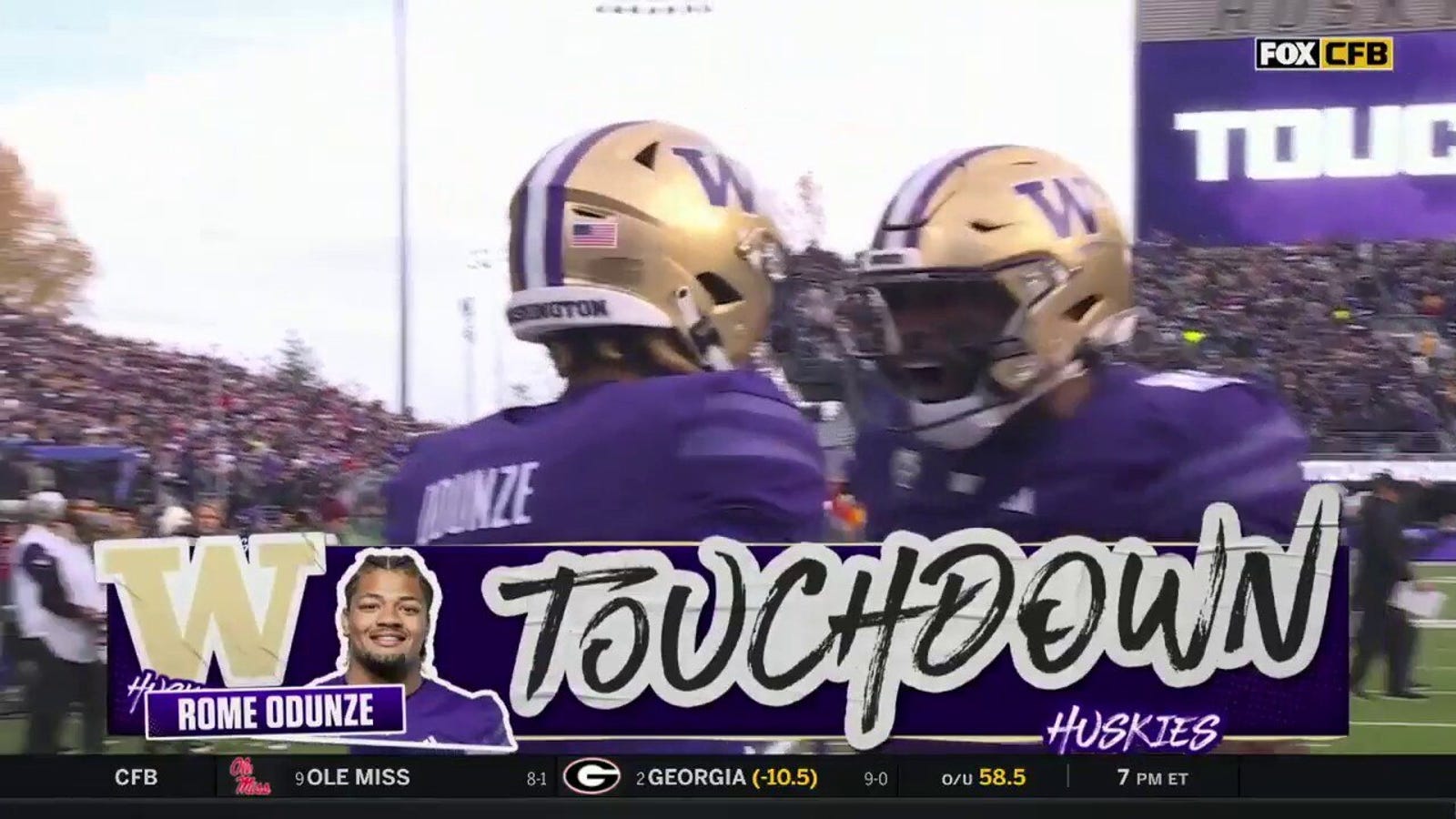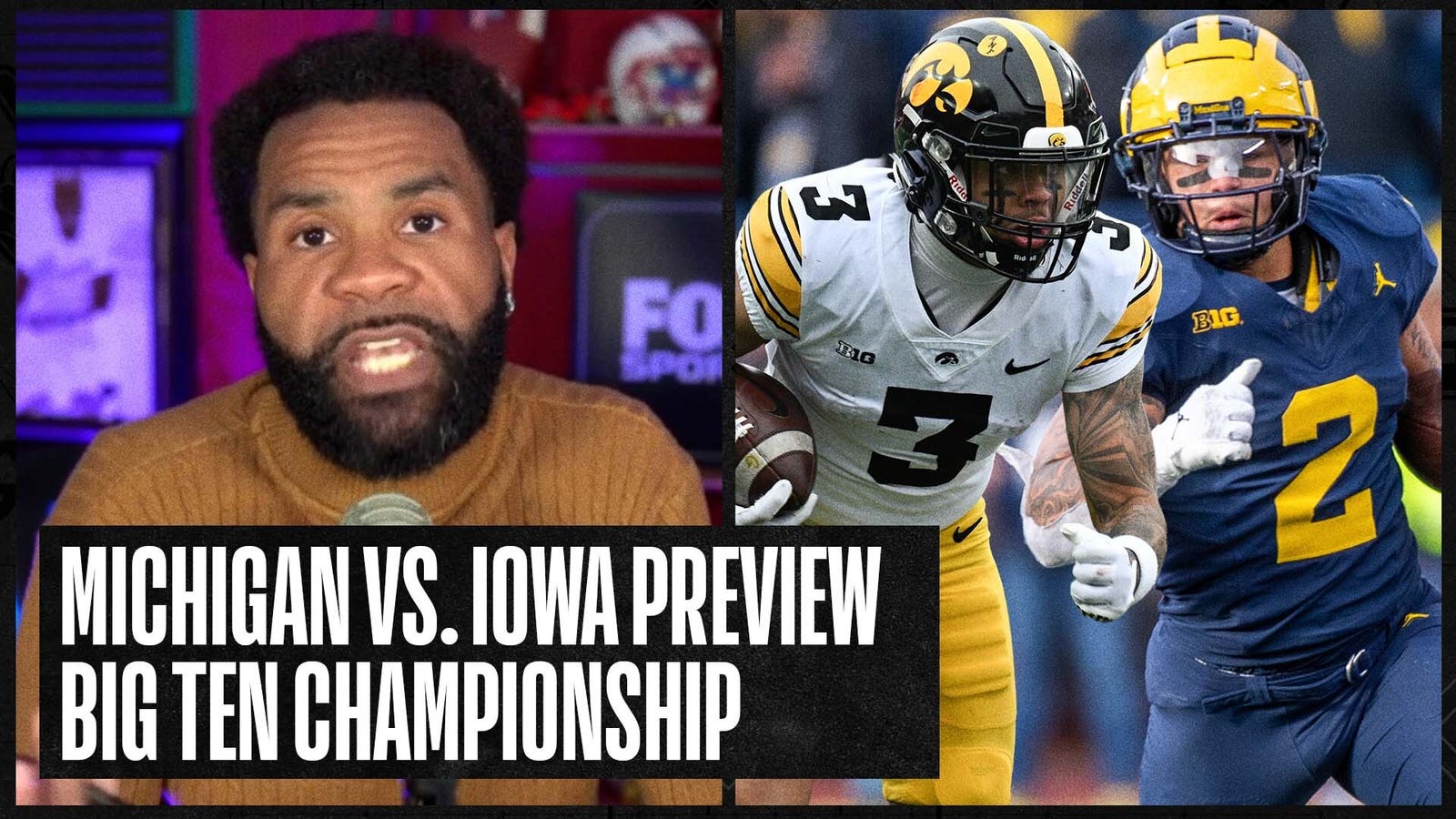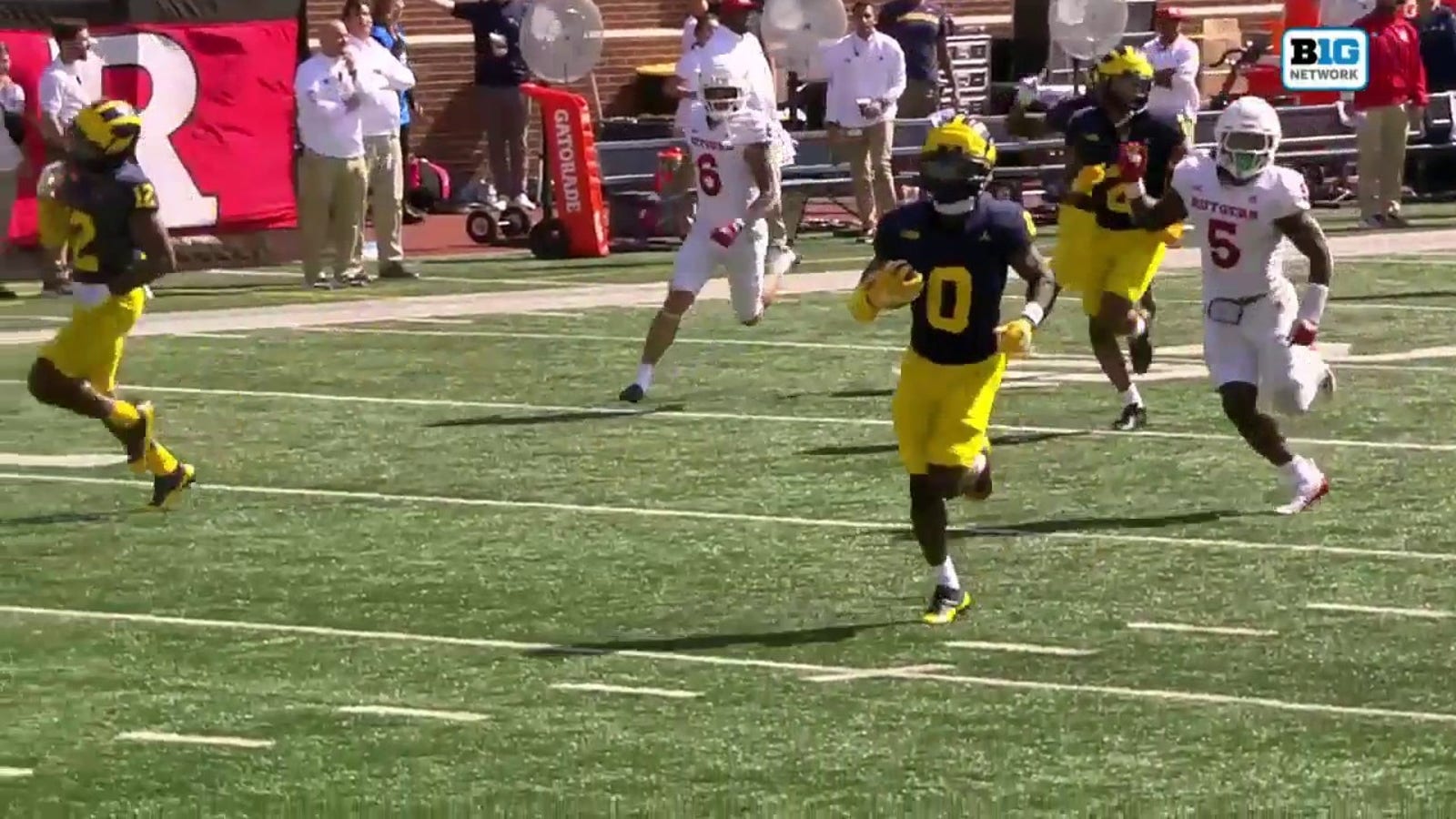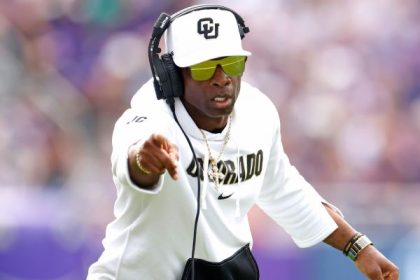Rob Rang
NFL Draft Analyst
As one might expect, this weekend’s college football conference championship games will feature dozens of future NFL draft picks.
As such, rather than focus on a few to watch in each contest, we wondered what kind of team we could create if we used only players expected to play in these games.
So we decided to build one.
Essentially, this is an all-star team of future NFL draft picks, chosen position-by-position and comprised of players we’ll get to see in this weekend’s Power 5 conference championship games.
ADVERTISEMENT
It isn’t simply a collection of the best players competing for league titles, however.
To be featured below, the players must be both eligible and highly qualified for the 2024 NFL Draft.
Sizes and seasons are based on players’ official school bios.
OFFENSE
QB: Bo Nix, Oregon, No. 10, 6-foot-2, 217 pounds, Senior
Leading the nation with 3,906 passing yards and currently ranking second with 37 passing touchdowns in 12 games (LSU‘s Jayden Daniels has 40), Nix narrowly edges out several qualified candidates playing this weekend to earn the nod as our starting quarterback. Nix’s ascent from Auburn outcast to the current favorite to win the Heisman Trophy is like something out of a movie. The talent, however, is very real, and with the NFL increasingly gravitating towards quarterbacks with dual-threat potential, Nix has emerged as a legitimate first-round candidate.
RB: Trey Benson, Florida State, No. 3, 6-1, 223, Redshirt Junior
While the aforementioned Nix emerged at Oregon, interestingly, Benson began his college career with the Ducks before flying south to star with the Seminoles the past two seasons. With 1,326 all-purpose yards and 10 touchdowns, he earned second team All-SEC honors in 2022 despite starting just six games, and has proven capable of even more this season with 15 combined touchdowns, including three last week against rival Florida. Benson is a burly back with exceptional speed, projecting as one of the few early round running back prospects in the 2024 draft.
WR (Flanker): Keon Coleman, Florida State, No. 4, 6-4, 215, Junior
Like Benson, Coleman began his college career elsewhere, opting to leave Michigan State this past season in the hopes of competing for a national championship in Tallahassee. He actually caught more passes (58) for more yards (798) in East Lansing a year ago than he has this season for the Seminoles, but that fact only makes him more valuable in the eyes of NFL scouts, who know he can be productive regardless of scheme, opponent or weather. Coleman’s blend of size, fluidity and body control would make him a first-round selection regardless of the logo on his helmet.
WR (Split End): Rome Odunze, Washington, No. 1, 6-3, 215, JR
With all due respect to Coleman and Ohio State‘s Marvin Harrison Jr. — who, of course, isn’t playing this weekend — no receiver has been more critical to his team’s success this season than Odunze has for the undefeated Huskies. Time and time again this season, Washington leaned on Odunze with the game on the line, and he’s proven to be the top Dawg, snagging 13 touchdowns overall, including the game-winner in the regular season showdown against Oregon. With his prototypical size, speed, sticky hands and sharp route-running skills, Odunze is a more complete receiver than Washington predecessors John Ross (2017), Reggie Williams (2004) and Dave Williams (1967), the only Husky wideouts to earn first-round selections in the NFL.
WR (Slot): Roman Wilson, Michigan, No. 1, 6-0, 192, SR
Significantly smaller (but faster) than his pass-catching peers at receiver, Wilson warrants being listed here, as well. Scouts eager to watch talented wideouts have plenty of quality options this conference championship weekend, but none who can boast Wilson’s elite acceleration. He’s been clocked in the 4.3s and is far from just a vertical threat, showing surprising grit, timing and strong hands to win jump-balls, whether it be outside or in the slot — where he’s lined up and caught the majority of his career-high 40 receptions (including 11 touchdowns) this season for the undefeated Wolverines.
TE: Brock Bowers, Georgia, No. 19, 6-4, 240, JR
One doesn’t have to be an NFL general manager to recognize a dominant talent like Bowers, who has scored a staggering 31 touchdowns in just three seasons for the two-time defending national champions. Blessed with a similar combination of instincts and quickness as San Francisco 49ers‘ star George Kittle, Bowers is a nightmare to defend in the receiving game, not only projecting as a Day 1 standout in the draft but as a rare tight end worthy of top-10 consideration.
LT: Troy Fautanu, Washington, No. 55, 6-4, 317, JR
While Washington’s dominant quarterback and receiver combination have received plenty of hype, Fautanu’s stellar play at left tackle has not earned the same recognition. He’s only surrendered a handful of pressures in Washington’s 427 passing attempts so far this season (most among the teams playing this weekend) virtually all of those coming on counters inside, rather than speed rushes to the outside as with most tackles. Slightly shorter than scouts would prefer, Fautanu may ultimately be moved to left guard in the NFL, but like last year’s No. 11 overall pick, Peter Skoronski (Tennessee Titans), that could come after earning a very high selection in next spring’s draft due to his core strength and light feet.
LG: Trevor Keegan, Michigan, No. 77, 6-6, 320, Redshirt Senior
Even after being recognized with second team All-Big Ten honors this season, it feels like Keegan does not get the respect he deserves for his contributions to Michigan’s success in both the passing and running game. The burly left guard has started 34 games over his career, showing not only the power and toughness one might expect given his frame, but also surprising quickness. While overshadowed by multiple players on Michigan’s offense — including several of his linemates, Keegan has surrendered just one QB hit (and no sacks) this season, according to Pro Football Focus.
C: Jackson Powers-Johnson, Oregon, No. 58, 6-3, 320, JR
In a strong class of upperclassmen centers, Oregon’s appropriately named Powers-Johnson bulldozed his way to the top of the board with a breakout “rookie” season in 2023, taking over as Oregon’s starting center this year after serving as a valuable and versatile sixth man a year ago. Broad-shouldered, physical, and yet surprisingly agile, Powers-Johnson saw action at every position up front but left tackle for Oregon in 2022. Often providing key blocks and not allowing a single sack, Powers-Johnson emerged as one of just five blockers in the entire country this year as a semi-finalist for the Outland Trophy.
RG: JC Latham, Alabama, No. 65, 6-6, 360, JR
Since Nick Saban took over in Tuscaloosa, no team has shown a smoother pipeline to the NFL than Alabama, so it might surprise some that we’ve waited this long to feature a member of the Crimson Tide. But, given his size, most could see the imposing Latham coming long before he arrived. For most NFL teams, that massive size is better suited inside at right guard — where he began his career in 2021 with the Tide — than at right tackle, where he’s started the past two seasons, but proven occasionally susceptible to speed rushers. Latham has been protected a bit this season by Alabama’s run-heavy approach, but pro teams looking to run the ball similarly could put him just about anywhere, as he’s an old-fashioned pile-pusher.
RT: Christian Jones, Texas, No. 70, 6-6, 321, rSR
There are several worthy candidates at right tackle (not the least of which is the aforementioned Latham), but Jones’ improved play and steady ascent up draft boards this season deserves acknowledgment. The prototypically-built bulldozer of a right tackle steadily provided clear rushing lanes and didn’t allow a single sack this season. Saturday’s kickoff against Oklahoma State will be the 47th start of his college career. It is an old (but true) cliche in the scouting business that the best “ability” is availability. Jones has provided that for Texas with a second-to-none reliability.
DEFENSE
Defensive End: Ashton Gillotte, Louisville, No. 9, 6-3, 270, JR
There are several who deserve credit for Louisville’s 10-2 regular season campaign and ascent to the ACC Championship game, but none more so than Gillotte, whose 14.5 tackles for loss and 11 sacks lead the conference and are more than double that of the next Cardinals‘ defender. It isn’t just the eye-popping numbers, however. Gillotte boasts a surprisingly polished arsenal of pass-rush moves. Quick, coordinated and capable of sliding up and down the line of scrimmage, Gillotte is quietly among the country’s most skilled rushers, earning him close looks from NFL evaluators.
Defensive Tackle: Kris Jenkins, Michigan, No. 94, 6-3, 305, SR
The son of an All-Pro of the same name, Jenkins has emerged this season as arguably the top defensive tackle in the entire country. He’s quick off the ball and can twist his shoulders to get skinny and penetrate, but Jenkins’ best attribute is his long arms, strong hands and raw power to detach from would-be blockers and wreak havoc at the line of scrimmage. Jenkins’ father was the 44th overall pick in 2001. It should surprise no one if the younger version hears his name called even earlier.
Defensive Line: Brandon Dorlus, Oregon, No. 3, 6-3, 285, SR
Sacks are the measurement most used when evaluating defensive linemen, and given his size and role, Dorlus stands apart in that metric, registering a career-high five this year after earning second team All-Pac-12 honors a year ago. But turnovers matter even more, and given how quickly NFL quarterbacks get the ball out, the ability to disrupt the passer in other ways is at least as important in today’s era. Dorlus led all FBS defensive linemen with eight passes defended, a number that ranked among the best defensive backs in the country. He may just be the most underrated defensive line prospect in the country, with a top-50 selection next spring likely.
Nose Guard: T’Vondre Sweat, Texas, No. 93, 6-4, 362, SR
Few NFL teams are willing to invest early picks in traditional run-stuffers anymore, but those in need of a fire hydrant inside will love how this Longhorn has tossed opponents aside this season. Sweat’s massive frame has always generated attention, but he took his game to another level in 2023, setting career-highs in tackles (40), tackles for loss (eight) and sacks (two), while often commanding double-teams.
Stand-up Pass Rusher: Chris Braswell, Alabama, No. 41, 6-3, 255, SR
With all due respect to the Alabama offense, the reason why Saban’s latest squad might return to the CFP this year is due to its defense, which features a three-headed monster in Braswell, defensive lineman Justin Eboigbe and fellow edge rusher Dallas Turner. With “just” 20 tackles, including four tackles for loss and 2.5 sacks a year ago, Braswell deserves special recognition this season as Alabama’s breakout defender, tying Turner for the team lead with eight sacks and leading the Tide with three forced fumbles. Eboigbe and Turner may very well earn higher draft picks this spring, but scouts are intrigued by Braswell’s agility and closing speed off the edge.
Off-Ball Linebacker: Smael Mondon Jr., Georgia, No. 2, 6-3, 225, JR
His first name may be pronounced “Smile,” but Mondon elicits more grimaces than grins from ball carriers with his explosive collisions and sideline-to-sideline speed. Mondon has taken more of a starring role for the Bulldogs since last year’s leading tackler and Butkus Award finalist Jamon Dumas-Johnson went down with an injury. He’ll be on center stage Saturday against Alabama’s dominant running game, giving Mondon the platform to start earning the recognition from fans and media that he has from scouts who view him as one of the few off-ball linebackers potentially eligible in this draft capable of playing all three downs in the NFL.
Cornerback: Kool-Aid McKinstry, Alabama, No. 1, 6-1, 195, JR
The primary requirement for cornerbacks is to stop wide receivers from scoring touchdowns, and in that regard, McKinstry is sweeter than the sugary drink for which he’s been nicknamed since childhood, surrendering a grand total of three scores in three seasons against elite competition. Possessing a lanky frame similar to recent top-32 picks Joey Porter Jr., Sauce Gardner and former Alabama star Patrick Surtain Jr., McKinstry is a good bet to join this trio with a similar selection this spring.
Cornerback: Mike Sainristil, Michigan, No. 0, 5-10, 182, rSR
As the NFL increasingly shifts to three- and four-receiver sets, versatility in the defensive backfield has become key, and Sainristil fits the bill. The senior began his Michigan career as a receiver and now is technically the Wolverines’ starting nickelback, but we’re listing him at corner here due to that versatility. Case in point: Against Ohio State last weekend, Sainristil’s 58 defensive snaps were split between slot corner (18), perimeter corner (26), box safety (10), edge rusher (3) and free safety (1). He allowed two catches for 16 yards. Sainristill has played all over the field and is arguably the defense’s most consistent big-play threat, hauling in five interceptions, two of which he returned for scores.
Nickelback: Jahdae Barron, Texas, No. 23. 5-11, 192, SR
While the aforementioned McKinstry possesses elite speed and change of direction for a cornerback of his size, and Sainristil’s ball skills help him stand apart among defensive backs, coverage is only part of the job description for a defensive back. A jack of all trades comfortable at nickel, outside corner, safety, and even linebacker, Brown is one of the better one-on-one tacklers in the nation, showing the lightning-quick reaction to support in the running game as well as on the underneath routes so common in today’s quick-hitting passing attacks.
Strong Safety: Evan Williams, Oregon, No. 33, 6-1, 205, SR
If turnovers are, indeed, the barometer being used for defensive backs, few have flown higher than the Ducks’ Williams, who has accumulated 13 over a career that began in 2019 at Fresno State. Williams has shown not only good instincts in the passing game, but aggression and physicality in the box against the run, as well. While his five fumble recoveries, four forced fumbles and four interceptions generate most of the buzz, it is his combination of tackles behind the line of scrimmage (16) and pass breakups (14) that really demonstrate his versatility.
Free Safety: Devin Neal, Louisville, No. 27, 5-11, 202, SR
Previously a standout at Baylor, Neal made an immediate impact for the Cardinals in 2023, earning Second Team All-ACC honors by pacing Louisville with four interceptions and finishing the regular season third on the team with 62 tackles. Neal is a heady, physical defender with a proven knack for making big plays in big games. Two of his interceptions this year came in Louisville’s big win over Notre Dame and last year he had picks against Iowa State and Big 12 champ TCU, suggesting that Louisville could prove quite the challenge for an undefeated Florida State squad attempting to overcome the season-ending injury to star quarterback Travis Jordan.
Rob Rang is an NFL Draft analyst for FOX Sports. He has been covering the NFL Draft for more than 20 years, with work at FOX, Sports Illustrated, CBSSports.com, USA Today, Yahoo, NFL.com and NFLDraftScout.com, among others. He also works as a scout with the BC Lions of the Canadian Football League. Follow him on Twitter @RobRang.
COLLEGE FOOTBALL trending
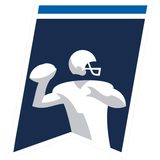
Get more from College Football Follow your favorites to get information about games, news and more




